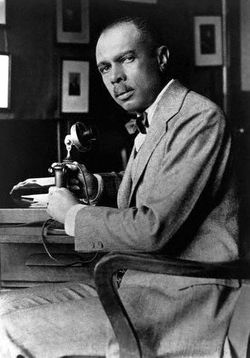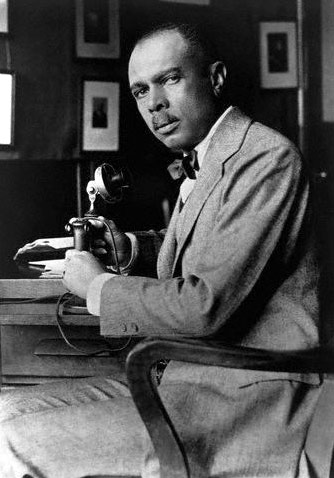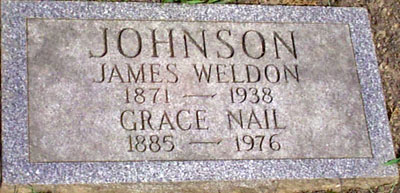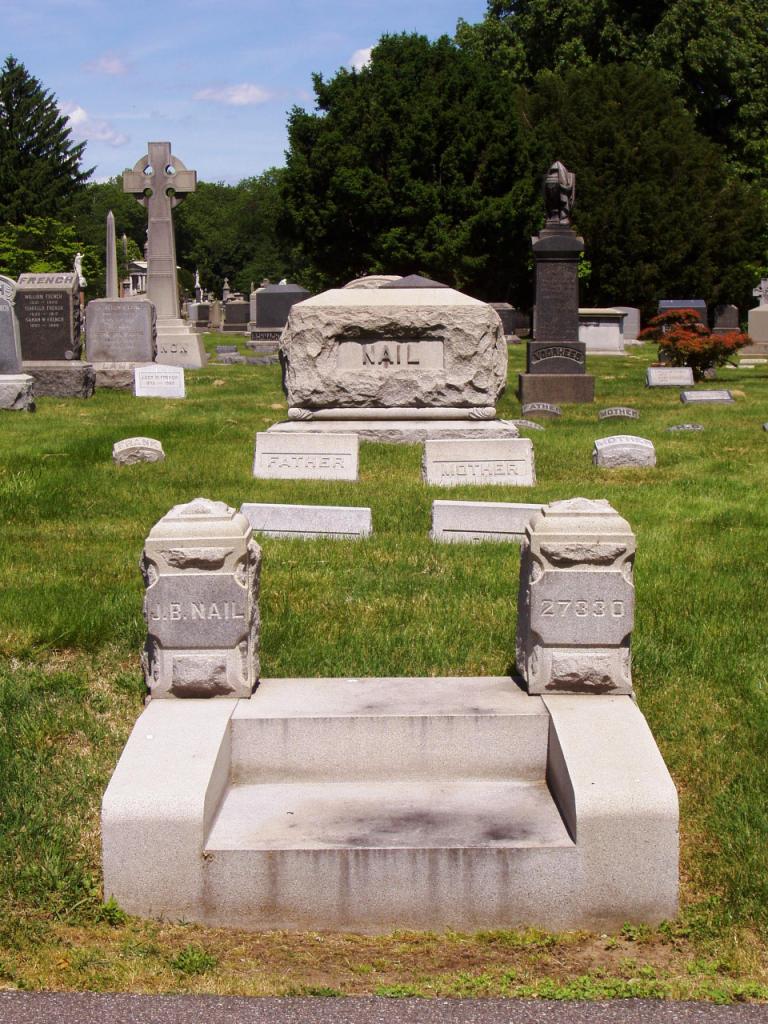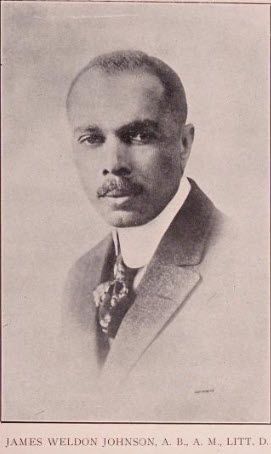Composer, Social Reformer, U.S. Diplomat. Probably best known as the lyricist of what has become known as the Black national anthem, "Lift Every Voice and Sing," (1900), composed by his brother, J Rosamond Johnson, which gives praise to Black hope, strength, and religious faith. He was also a teacher, poet, author, government official, and civil rights leader. Born James William Johnson in Jacksonville, Florida, in 1871, he later changed his middle name to Weldon in 1913. In his lifetime, he wrote over 30 poems, he also started the first Black daily newspaper in the United States, "The Daily American," in 1895. He went on to become the first Black lawyer in the state of Florida, and served as United States Ambassador to Venezuela in 1906, Nicaragua in 1909 and the Azores in 1912. In 1916, he joined the NAACP as National Field Secretary and worked for almost 15 years. He spent two years in Washington, D.C. trying to get a law passed to stop lynchings in the United States. Later in his life, he retired from the NAACP and taught at Fisk University, in Nashville, Tennessee. In 1933, he published his popular autobiography "Along This Way." He died in 1938 near his summer home in Wiscasset, Maine, when the car in which he was driving was struck by a train in a heavy rainstorm. His funeral, held in Harlem, was attended by more than 2,000 people.
Composer, Social Reformer, U.S. Diplomat. Probably best known as the lyricist of what has become known as the Black national anthem, "Lift Every Voice and Sing," (1900), composed by his brother, J Rosamond Johnson, which gives praise to Black hope, strength, and religious faith. He was also a teacher, poet, author, government official, and civil rights leader. Born James William Johnson in Jacksonville, Florida, in 1871, he later changed his middle name to Weldon in 1913. In his lifetime, he wrote over 30 poems, he also started the first Black daily newspaper in the United States, "The Daily American," in 1895. He went on to become the first Black lawyer in the state of Florida, and served as United States Ambassador to Venezuela in 1906, Nicaragua in 1909 and the Azores in 1912. In 1916, he joined the NAACP as National Field Secretary and worked for almost 15 years. He spent two years in Washington, D.C. trying to get a law passed to stop lynchings in the United States. Later in his life, he retired from the NAACP and taught at Fisk University, in Nashville, Tennessee. In 1933, he published his popular autobiography "Along This Way." He died in 1938 near his summer home in Wiscasset, Maine, when the car in which he was driving was struck by a train in a heavy rainstorm. His funeral, held in Harlem, was attended by more than 2,000 people.
Bio by: Curtis Jackson
Family Members
Advertisement
